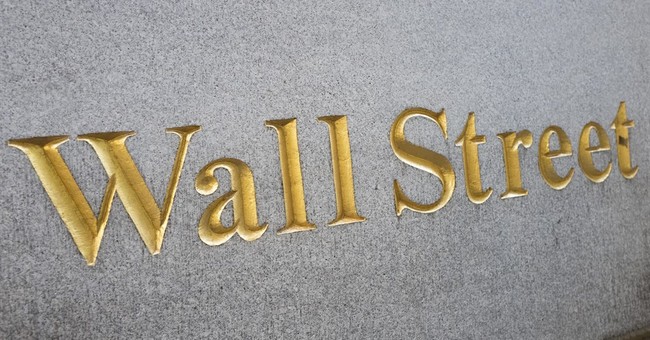
Most mainstream analysts believe that the current economy can survive with more normalized rates and that the Fed's timidity is unwarranted. These people just haven't been paying attention. The "recovery" of the past eight years hasn't been just "helped along" by deeply negative real interest rates, it is a singular creation of those policies. Since June 2009, when the current recovery began, traditional economic metrics, such as GDP growth, productivity, business investment, labor force participation, and wage growth, have all been significantly below trend. The only strong positives have been gains in the stock, bond and real estate markets. We have had an "asset price" recovery rather than a bona fide economic recovery. This presents unique risks.
Asset price gains have been made possible in recent years because ultra-low rates have driven down the cost of borrowing, encouraged speculation, and pushed people into riskier assets. Donald Trump was right in the presidential debate when he noted that the whole economy is "a big fat ugly bubble." Any rate hike could hit those markets hard across the financial spectrum and can tip the economy into contraction. Look what happened this January when the market had a chance to digest the first rate increase in 10 years. The 25 basis point increase in December 2015 led to one of the worst January's in the history of the stock market. Since then, the Fed has held off from further tightening and the markets have treaded water. There is every reason to believe that the sell-off could resume if the Fed presses ahead.
Typically rate-tightening cycles start in the early stages of a recovery when the economy is still gathering momentum. As I have argued before, a rate tightening campaign that begins in the decelerating tail end of an old and feeble recovery is bound to unleash problems.
So I agree with those who believe that rate hikes now will bring on recession, but I disagree that we should keep rates where they are. They believe we need to keep the stimulus pedal to the metal...and when that's not enough, to cut a hole in the metal and push harder. I believe that despite the short term pain that will surely follow, we need to raise rates now to break the addiction before it gets worse.
Summers knows that central bankers now do not have the caliber of bazookas that their predecessors once carried (Bernanke was able to slash interest rates over 400 basis points in a few months). So he advocates continued stimulus until newer means can be developed to head off the next recession before it develops. (He promises to reveal those new ideas soon...really).
Given all the economic realities that central banking has attempted to suspend in recent years (such as the antiquated belief that lenders should be paid to lend rather than being charged for the privilege), it's no great stretch for them to consider the next big leap and call for an age of permanent expansion.
Just this week the International Monetary Fund issued a report about the dangers of global debt growth, which has reached $152 Trillion, or roughly twice the size of global GDP. They noted that the growth of private debt has recently led the upswing. With negative rates actually paying some companies to borrow, should this be a surprise? And while it's nice that the IMF raised a red flag, it's pathetic that their only proposed solution is to call for governments to increase public debt through fiscal stimulus (based on what should now be the debunked theory that deficit spending creates growth).
Even more pathetic is Alan Greenspan attempt on CNBC this week to blame the current low growth economy on Congress, and its failure to reign in entitlements. Greenspan is correct in his determination that "the new normal" results from the plunge in productivity gains that is a function of drops in savings and capital investment. But he can't absolve the Fed. Had they not monetized the ever growing Federal deficits, or kept interest rates artificially low for so long, market forces would have forced cuts in entitlement spending years ago. These actions, originated with Greenspan himself, enabled Congress to repeatedly kick the can down the road.
According to Greenspan, to spare the public the pain of higher interest rates the Fed has no choice but to hold its nose and accommodate any level of debt Congress chooses to accumulate. But the ability to pursue unpopular policy is precisely they are supposed to be politically independent. What good is an independent central bank that simply helps incumbents win reelection?
Given that the Fed has already unsuccessfully exhausted so much firepower, it is unfortunate that it never seriously questions whether their policies are actually harmful. Modern economists simply can't imagine that throwing ever more debt on the back of a weak economy actually prevents it from recovering.
I think it's high time the Fed finally moves rates well into positive territory. The next recession has been on its way for years, and it will arrive no matter what the Fed does, if it's not already here. Sometimes reality hurts, but fantasy can be more damaging in the long run.
The real choice is not between recession now or recession later. It's between a massive recession now, or an even more devastating one later. Either way, there is no Fed policy that will be able to fight it. But that is not because the Fed is out of bullets, but because it never had any real bullets to fire in the first place. All it had was morphine to numb the pain as the wound festered. Now is the time to bite the bullet, endure the pain, and allow the wound to actually heal. This will also allow us to finally bury the idea of a new normal, enjoy a real recovery with all of its traditional benefits, and actually make America great again.
No comments:
Post a Comment